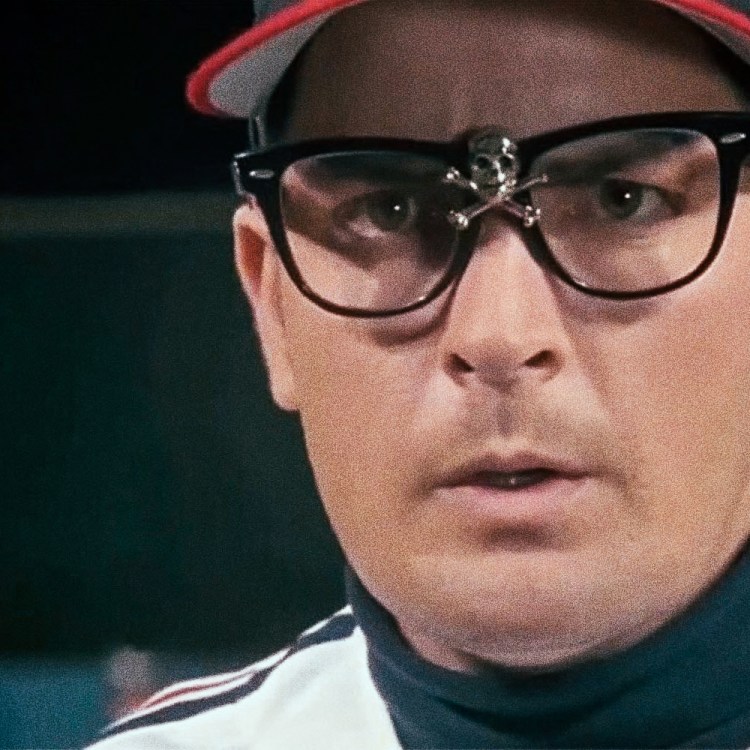“I’m not technically a coach now,” John Fox says when asked how he feels about everyone at New York City’s NFL Experience invariably referring to him as “Coach Fox.” It makes sense people still call him that because Fox is a true coaching lifer. By 2001, he had been in coaching for four decades with stops at eight colleges, a USFL franchise (for its final season before the entire league folded) and five NFL teams… and he still had yet to become a head coach.
That chance finally came with the Carolina Panthers in 2002. (It was not a dream gig—they went 1-15 the previous season.) Fox immediately improved their record to 7-9 and stayed a total of nine seasons before he went on to run the Denver Broncos and Chicago Bears. After 16 seasons, Fox has a winning record in both the regular (133-123) and postseason (8-7). He won the NFC with Carolina to reach Super Bowl XXXVIII, where the Panthers scored a touchdown with less than two minutes to go to tie the score, only to lose on a field goal by New England’s Adam Vinatieri. A decade later he got revenge on Coach Belichick when his Broncos beat the Pats to win the AFC and give him a second Super Bowl appearance.
Fox credits much of his career to the Panthers drafting a “game changer” in 2002: linebacker Julius Peppers. Quite simply, he believes Carolina getting the Peppers pick right “allowed me to be a head coach [with the Panthers] for nine years.”
Incredibly, Peppers—Defensive Rookie of the Year, three-time First Team All-Pro and nine-time Pro Bowler—is still in the NFL. (He’s actually back with the Panthers, after playing for the Bears and Packers.)
The pick before Peppers was David Carr, who last started in the NFL in 2007.
The pick after Peppers was Joey Harrington, who last appeared in the NFL in 2007.
Which goes to show how a bad draft choice can actively haunt a team more than a decade later.
The man who got his first NFL job under legendary Steeler Chuck Noll (who led Pittsburgh to four Super Bowls in the ’70s) and whose close friends include former New York Giants colleague Sean Payton (who coached the Saints to victory at Super Bowl XLIV in 2010) gives tips on making the correct call, as well as explaining why dealing with humans makes that so difficult.
Don’t Outsmart Yourself. Okay, you have a top-five pick and you’re convinced you can use it to get a star. But what if you could trade down and get that same star a little later in the draft? Or maybe trade way down so you pick much later in the draft where you can find a prospect who’s not quite as promising as your favorite but when you factor in the additional assets you acquire by … Stop. Take a deep breath. There is no shame in doing what Carolina did with Peppers and just snatching up the sure thing before someone else does: “Julius was an impact dude—they don’t come along very often.”
Chase “Clouds.” NFL Drafts are invariably filled with teams trading up and trading down. Fox says if you’re moving, ideally wind up where there’s a “cloud.” By that he means multiple acceptable options, so even if the teams picking ahead of you unexpectedly snatch up prospects you’re eying, there will still be someone available with the value to justify making the trade in the first place. It’s a simple way to ensure “you’re not going to be heartbroken.”
Don’t Take Change Lightly. There’s always a temptation to look at a college player and think, “Imagine what he could do if we just moved him to a new position.” Fox wants to make clear that this is a big shift: “You’re a computer science major—now you’re going to med school.” He cited the case of a 6’6” quarterback converting to a wide receiver who showed such freakish athleticism at combine workouts that he was dubbed “The Freak”: “Matt Jones—did well at all the underwear stuff.” The Freak lasted just four seasons in the NFL, scoring 16 TDs total (regular season and playoffs). Fox cites Carnell Lake as a player who switched successfully, going from a college linebacker to safety early in his pro career and later to corner. Fox says Lake succeeded because he was “super smart and a tireless grinder.” To find an exceptional athlete with one of those qualities is fortunate—both is a borderline miracle.
Quarterback Isn’t the Only Challenge. While many teams agonize over why they can’t locate a franchise QB already, Fox says even more frequently they flub finding someone to throw to: “The receiver fail rate is worse than quarterback.” It’s a difficult position to evaluate since it depends on the offensive line doing their job and protecting the quarterback and then the quarterback doing his job and getting them the damn ball before the receiver can really do theirs. Even so, the last three drafts have seen 13 first-round selections of wide receivers and only Amari Cooper has reached the Pro Bowl. (And he’s coming off a relatively mediocre season with seven touchdowns, 48 catches and 680 yards over 14 games/12 starts.)
Don’t Pay Attention to the Press. Fox says he is delighted by the amount of speculation and scrutiny the NFL Draft attracts, finding it a great way to “promote our game.” He just can’t imagine anyone inside a draft room being influenced by it. Or even noticing it, really. In particular, Fox believes any “insider” is likely being fed “targeted bullsh-t” designed to throw off other teams. He recalls being amused during his time with the Bears to see reports they would select linebacker Vic Beasley: “We had no intention of taking Vic Beasley.” (Beasley actually went to the Atlanta Falcons.) Can there be accurate leaks and astute reporters who correctly determine what a team will do? Absolutely, but there are better ways for teams to spend their time than monitoring twitter feeds for that hot scoop.
It’s Good to Find Failures. More accurately, players who’ve experienced failure. “My dad was a Navy SEAL,” says Fox. His father found that usually the people who quit were “the most talented.” Why? “Everything came easy.” Many draftees have been utterly dominant in college. Maybe this will continue in the pros. More likely, they’ll be humbled. It’s encouraging to know you have a player who responds to setbacks by working harder, rather than the guy who might just take his ball and go home.
Don’t Forget How They Actually Play. Ahead of the draft, it’s possible for a great/horrific workout at the combine to overshadow a prospect’s actual play. (“We go apesh-t for measurables,” Fox says.) But it’s necessary to take in everything. There’s no substitute for actual game film—Fox notes that’s where you see “what kind of instincts” they have for football. That said, there’s a place for workout data and measurements too. For instance, teams generally consider arm length important to tackles on the offensive line—the former director of college scouting for the Bears Greg Gabriel has written that “arm length is the key to getting leverage.” So for that position in particular, the measurement can be invaluable. As Fox puts it, “You’re not gonna increase your arm length.”
Understand What’s Allowable. You may be the head coach. You may even be in a Belichick-esque situation where you effectively control the GM side of the team as well. But you’re not the person writing checks. Maybe you, as a coach, think a kid with a checkered past has turned a corner and deserves a shot. (Or, on the flip side, perhaps you feel focusing on talent to the point of overlooking character just leads to a poisoned locker room.) How does the person paying for everything feel about that? Or is there a political matter? Or something else that technically doesn’t involve football but sure seems like it could be an issue? Fox says an organization likely needs to ask: “What’s ownership willing to take? We’re in some funny times.”
The Human Element. Truth #1: Football is a frequently brutal game that requires 11 individuals to function as a single unit. Truth #2: If you’re a high draft pick, you suddenly have a ton of money. It can be challenging to reconcile these two facts. “This is a blue-collar job, but it’s like you won the lottery,” Fox says. How will a rookie handle struggling on the field (maybe for the first time in their life) at the same moment they become rich? So far, there’s no algorithm to solve this particular problem.
Quite simply, people develop in unexpected ways. Fox selects another sport to illustrate this, noting his children played basketball in high school with a young man named Steph Curry. (Perhaps you’ve heard of him.) “A little scrawny kid,” Fox recalls. Curry wanted to play at Virginia Tech, but was only offered a spot as a walk on. This was particularly humbling because Tech retired his father Dell’s number. Besides, Tech’s hardly a powerhouse—they’ve never advanced as far as the Final Four and haven’t even reached the Sweet Sixteen since 1967.
Curry went to Davidson. Then to the NBA, where he collected two MVPs. “A late bloomer,” Fox muses.
That’s one of the reasons the NFL Draft is so stressful. Ultimately, Fox says you can never be certain there is or isn’t a future Curry in your midst: “You can’t predict it 100 percent. You’re dealing with people.”
This article was featured in the InsideHook newsletter. Sign up now.






















